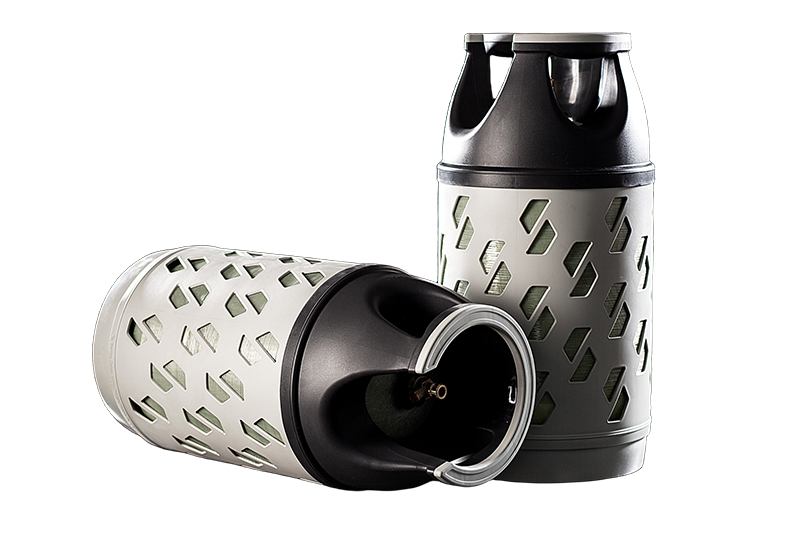Composite glass fiber cylinders are increasingly used in fire extinguishers due to their lightweight, high strength, and corrosion resistance. Below is a detailed analysis of their applications and advantages:
1. Structural Design and Material Benefits
- Lightweight: Glass fiber composite cylinders reduce weight by ~50% compared to traditional metal cylinders, enhancing portability1.
- High Strength: Wrapped with glass or carbon fiber, these cylinders withstand pressures up to 30MPa and resist impact1.
- Corrosion Resistance: The epoxy resin and fiberglass combination prevents oxidation and chemical degradation, ensuring long-term durability1.
2. Performance in Fire Extinguishers
- Rapid Response: High-pressure gas release ensures quick fire suppression, with extended spray range2.
- Safety: No metal stress concentration issues; sealed interfaces prevent high-pressure cracking1.
- Versatility: Suitable for electrical, liquid, and gas fires, with low maintenance costs23.
3. Technical Standards and Maintenance
- Inspection Intervals: Regular checks are required (e.g., every 5 years in Europe, 3 years in the U.S.)4.
- Usage Precautions: Avoid over-pressurization, contact with oils, or artificial heating4.
4. Comparison with Traditional Metal Cylinders
| Feature | Composite Glass Fiber Cylinder | Traditional Metal Cylinder |
| Weight | 50% lighter | Heavier |
| Corrosion Resistance | Excellent | Prone to oxidation |
| Maintenance Cost | Low | Higher |
| Lifespan | Up to 15 years | Typically <10 years |
These cylinders are ideal for extreme environments like high-rise buildings and mines, driving innovation in fire extinguisher technology.

